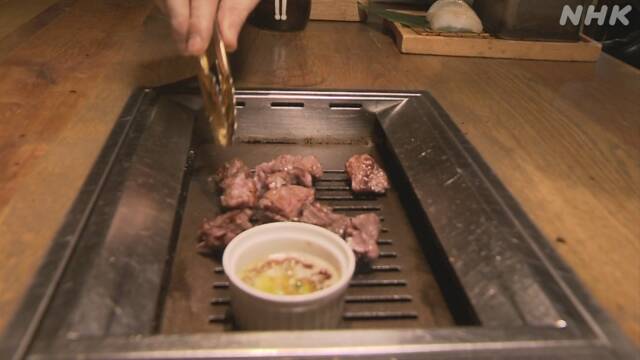In response to the depreciation of the yen to the 130 yen level per dollar in the foreign exchange market, the operating companies of yakiniku chains that handle imported beef have voiced concerns about the impact on management due to rising purchase prices. ..
The company, headquartered in Aichi Prefecture, which has about 290 yakiniku restaurants nationwide, imports frozen beef ribs and skirt steak from the United States.
Import prices of American beef have continued to rise against the backdrop of normalization of economic activities from the Corona disaster, but this company has expanded its suppliers to Europe, South America, etc., and with business partners. He says he has endeavored to maintain product prices by switching to longer-term contracts.
However, as the yen depreciates further after coming here, it is expected that the purchase price of beef procured in yen through wholesale companies will rise further in the future, and if the current product price is maintained, profits will be squeezed. Is inevitable, and there are growing concerns about the impact on management.
"The food service industry has a large proportion of imported products, and fluctuations in foreign exchange are likely to affect raw material prices. We will continue our corporate efforts to keep quality and prices unchanged," said Setsu Hariya, general manager of the Purchasing Logistics and Production Division of "Monogatari Corporation." However, the depreciation of the yen may put a burden on customers due to soaring raw material prices, so we would like to keep an eye on the future situation. "
Nestlé Japan also raises prices for some coffee products
Nestlé Japan, a major food manufacturer, has decided to raise the price of some coffee products from June in response to the sharp rise in purchasing prices due to the rapid depreciation of the yen.
According to the announcement, Nestlé Japan will raise the price of 12 capsule-type products of regular coffee, which are extracted by a special machine, by about 11% to 13% from the shipment on June 1st.
As for the reason, the company has converted the international transaction price of green coffee beans last month into yen as a result of the recent rapid depreciation of the yen, in addition to the increase in global demand for coffee and bad weather in Brazil, which is the main production area. The price soared about 2.5 times that of January, and it is said that it could not be absorbed by the efforts of companies alone.

